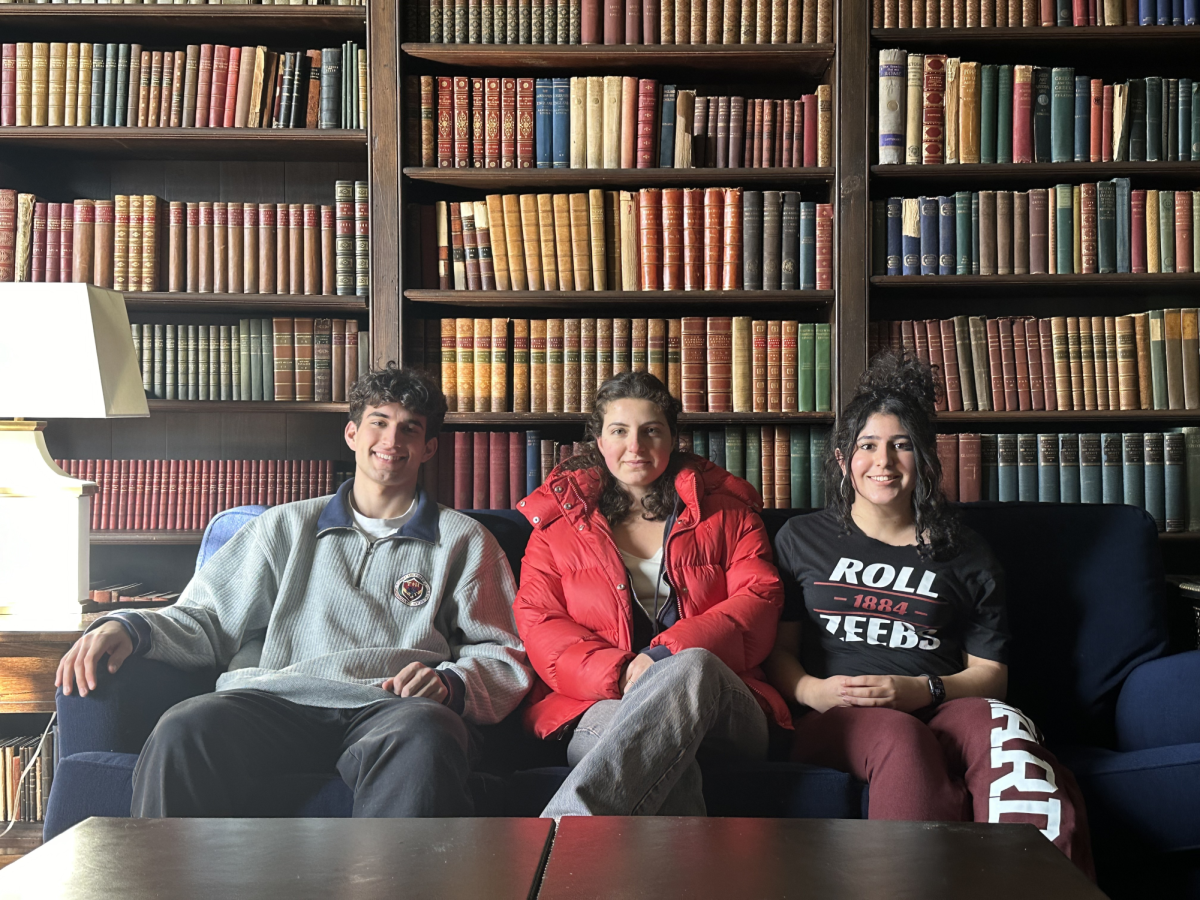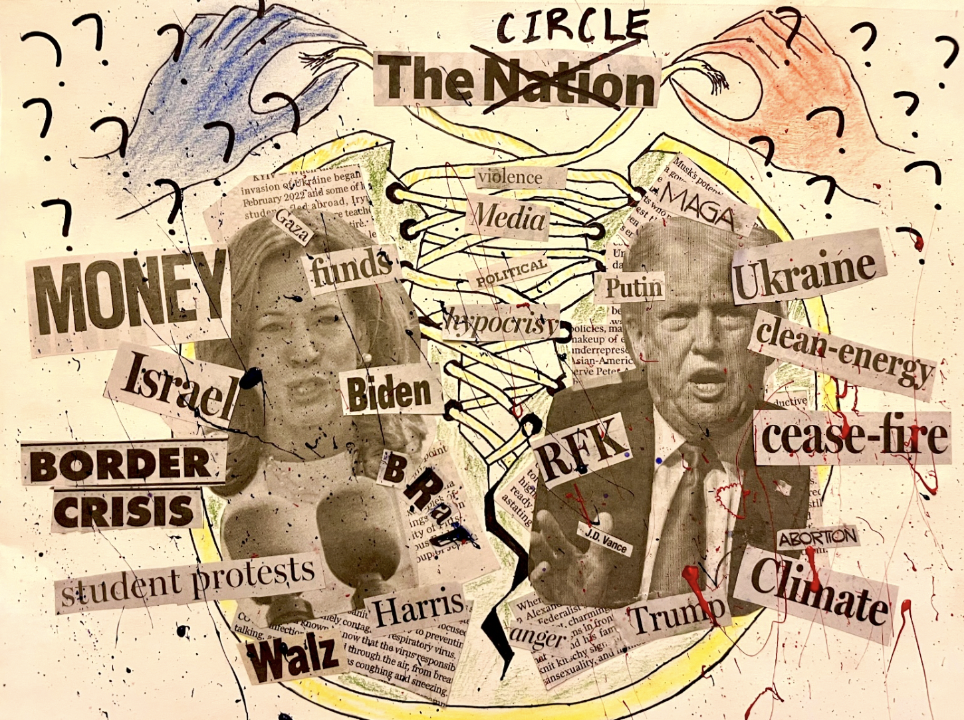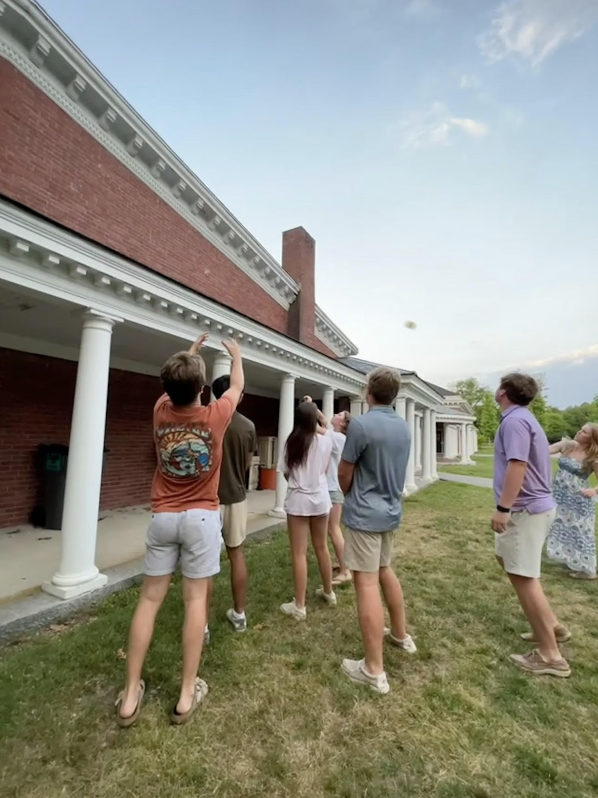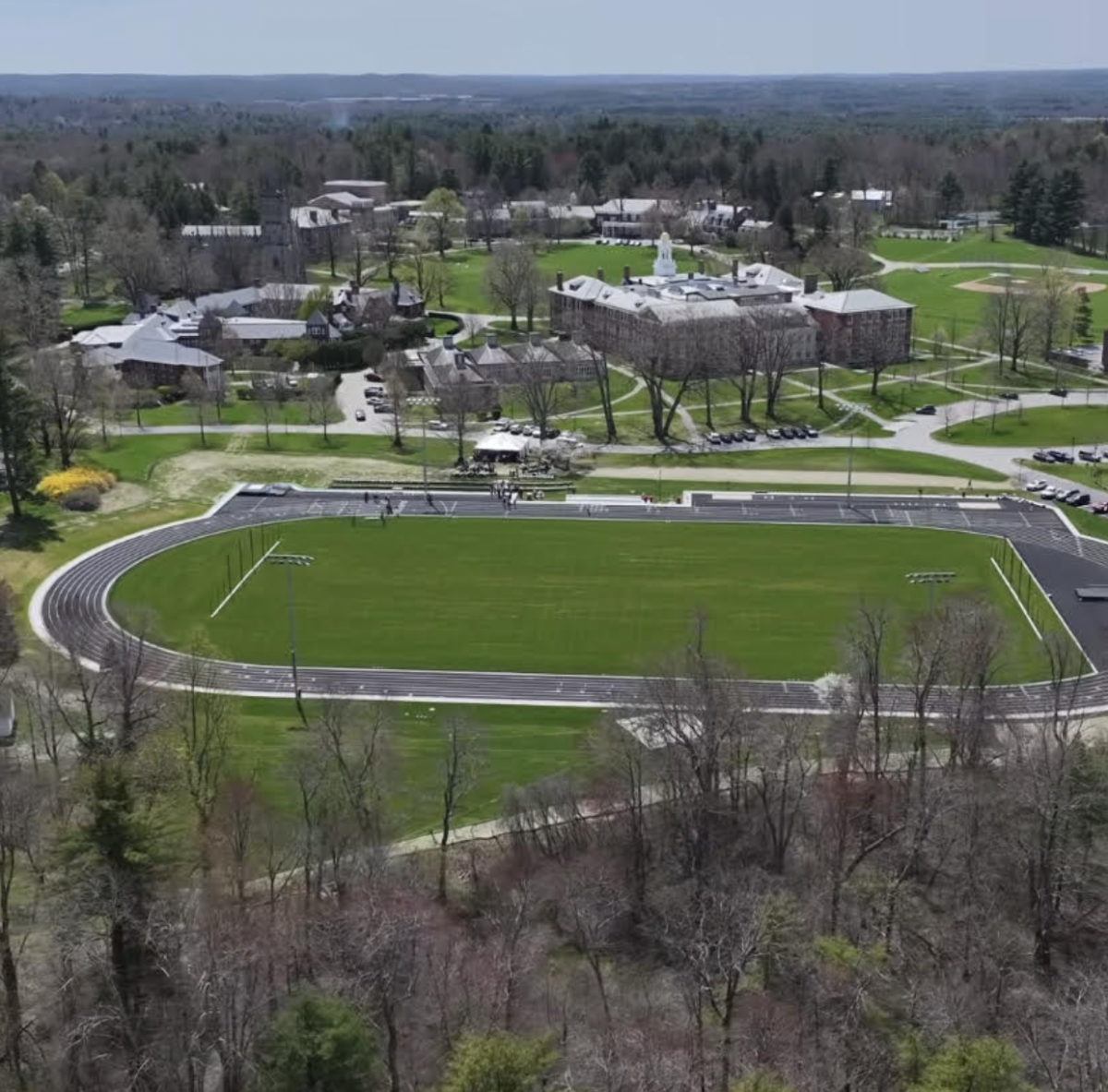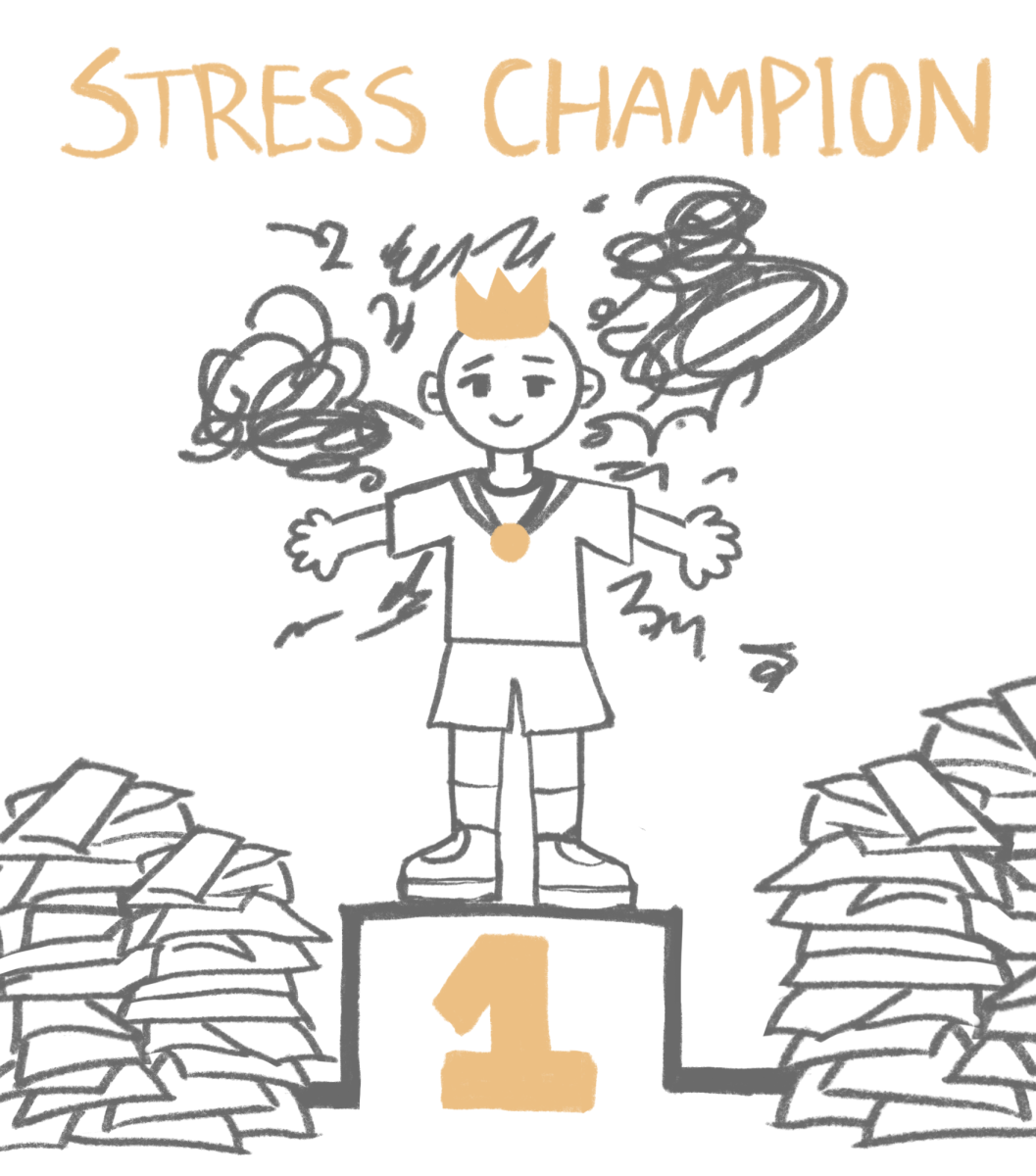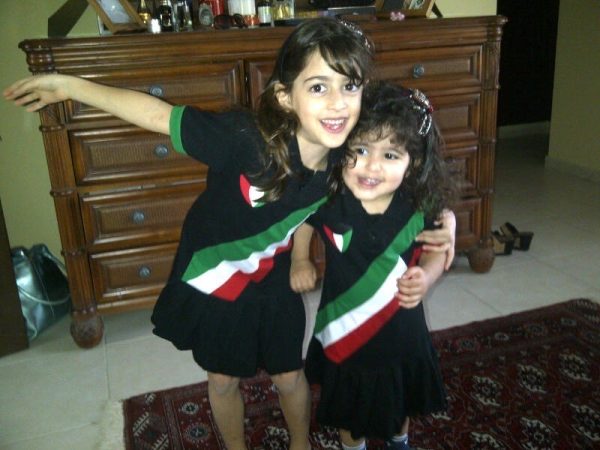 Within the Groton bubble, the world around us often dissolves. Yet beyond the glass, the world is on fire. As we manage school assignments, the Israel-Hamas war rages in the Middle East, where Israeli forces have killed tens of thousands of Palestinians and more than 100 Israeli hostages remain unreturned by Hamas. But we often forget that members of our community are also affected by these global issues. As we immerse ourselves deeper into the discourse and emotions that come with the war, it is most important to highlight members of our community who have connections to this conflict as they are the closest to the situation.
Within the Groton bubble, the world around us often dissolves. Yet beyond the glass, the world is on fire. As we manage school assignments, the Israel-Hamas war rages in the Middle East, where Israeli forces have killed tens of thousands of Palestinians and more than 100 Israeli hostages remain unreturned by Hamas. But we often forget that members of our community are also affected by these global issues. As we immerse ourselves deeper into the discourse and emotions that come with the war, it is most important to highlight members of our community who have connections to this conflict as they are the closest to the situation.
After Hamas launched its attack on Israel on October 7, 2023, Administrator at Large Julia Rowland, an Israeli citizen, became entrenched in worry and grief. Ms. Rowland has played for Israel’s national lacrosse team since 2021. Many of her teammates have been called to fight, and two of her friends lost their lives as a result of the attacks of October 7. “The aftermath of October 7 drained me,” said Ms. Rowland. “My feelings were amplified because I was seeing everything play out online.”
She elaborated that consuming war-related content on social media was toxic to her mental health. “As a Jewish person, I wanted a break from all the news and posts I was seeing on social media,” she said. “This situation is very complicated, and I was seeing a lot of people reposting strong statements online.”
Hanna El-Jeaan ’27 also voiced frustration regarding the turbulence the issue has caused on the internet as well as in her home country, the United Arab Emirates. “I have had Palestinian relatives who have perished as a result of the war and family in Lebanon whose lives have been altered dramatically,” Hanna said.
As the conflict penetrates the gates of the Circle, Hanna expressed a desire to foster more respectful conversations at Groton surrounding the war. “There are many people who didn’t know about the issue until now and are also unaware of the history,” said Hanna.
She also added that she has often witnessed people grow ignorant to the nuance within the conflict. While participating in a discussion in her Foundations of Global History class, Hanna observed some peers listening respectfully, while other students ignored their peers’ ideas entirely. “Some people were just speaking on the issue just to speak without listening to others in order to stimulate productive conversation,” Hanna said.
CJ Armaly ’24, a Palestinian-American, also echoed this desire to foster more productive conversations about the conflict on campus. As a co-head of Groton’s History Club, he decided to host a discussion about the war that was open to the school. But CJ’s motivation to hold the conversation also lies in his Palestinian roots: his family is of Palestinian descent and currently lives in Lebanon, where they fled to in 1948 as a result of the Palestinian Exodus.
While commenting on the meeting hosted by History Club, CJ warned of the “danger of a single story,” explaining that many people were eager to share personal anecdotes emphasizing one side of the issue. However, he added that “the majority of the people who attended the meeting had appropriate and respectful intentions.” CJ also highlighted our goal of the meeting to center the conversation around facts rather than trying to propagate certain ideas or qualms.
Similarly to Ms. Rowland, Samara Gorton ’26 also has strong ties to Israel as a Jewish-American, and feels emotionally affected by the conflict. Last year, Samara lived in Israel for five months while participating in a program for Jewish high schoolers. While living in Israel, Samara shared that even when there was a slight scare, everything would be shut down. “I can’t even imagine what it’s like living in that region now,” she said.
Samara joined the Groton community in the fall and appreciates that Groton isn’t trying to force a “correct narrative” regarding this issue, in comparison to her old school which “sometimes taught from one lens.” But in regards to discussions she’s had surrounding the Israel-Hamas War on campus, Samara emphasized, “This war is being fought by two sides, so there isn’t necessarily a right or wrong to choose. It’s okay to share your opinion, but it’s not okay to try to impose it on others.”
At Groton, it’s vital that we continue to have respectful, courageous conversations surrounding challenging issues. It’s imperative to approach this issue with awareness and understanding. The best we can do is to continue to support those who have been affected by this war and center our conversations around learning and developing our perspectives.


